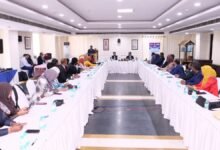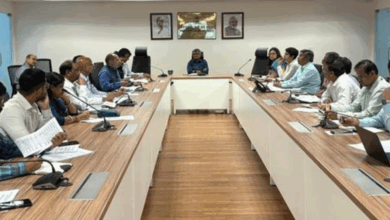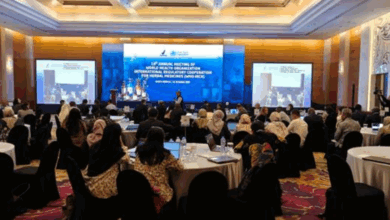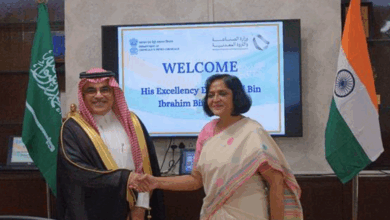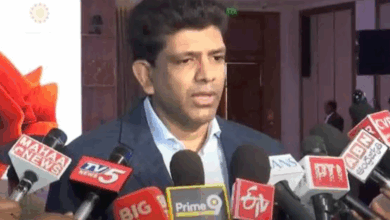The First Executive Batch of the Capacity Building Programme for Senior Civil Servants of the Socialist Republic of Sri Lanka commenced today at NCGG, New Delhi
The Programme is being attended by 14 Senior Civil Servants from several key Ministries and Departments
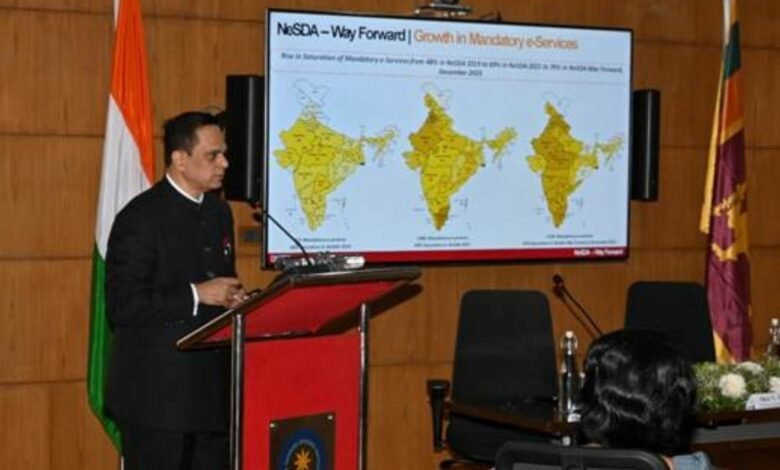
The first executive batch of the special capacity building programme for senior civil servants of Sri Lanka organised by the National Centre for Good Governance (NCGG) commenced today in New Delhi. The programme is being organised from 12th February 2024 to 17th February 2024. The programme is being attended by fourteen senior civil servant officers from Sri Lanka working under capacities as Secretary to the Prime Minister, Deputy Solicitor General, Directors, and Executive Director among others.
The NCGG, an autonomous institution under the Department of Administrative Reforms and Public Grievances, Ministry of Personnel, Public Grievances and Pensions, Government of India, is committed to action research, studies, and capacity building in public policy and governance at both the national and international levels.
The mandate aligns with fostering collaboration and knowledge exchange among civil servants, particularly from neighbouring nations, in line with the principles of ‘Vasudeva Kutumbakam’ and the ‘neighbourhoods first’ policy advocated by Hon’ble Prime Minister of India, Shri Narendra Modi.
The capacity-building programme, focusing on Digital Governance, Anti-Corruption Strategies, and Public Policy Institutions, holds the promise of equipping participants with invaluable skills and knowledge. By imbibing best practices from India, civil servants will be empowered to drive positive change, foster transparency, and strengthen governance in Sri Lanka, contributing significantly to the country’s progress and the welfare of its citizens.
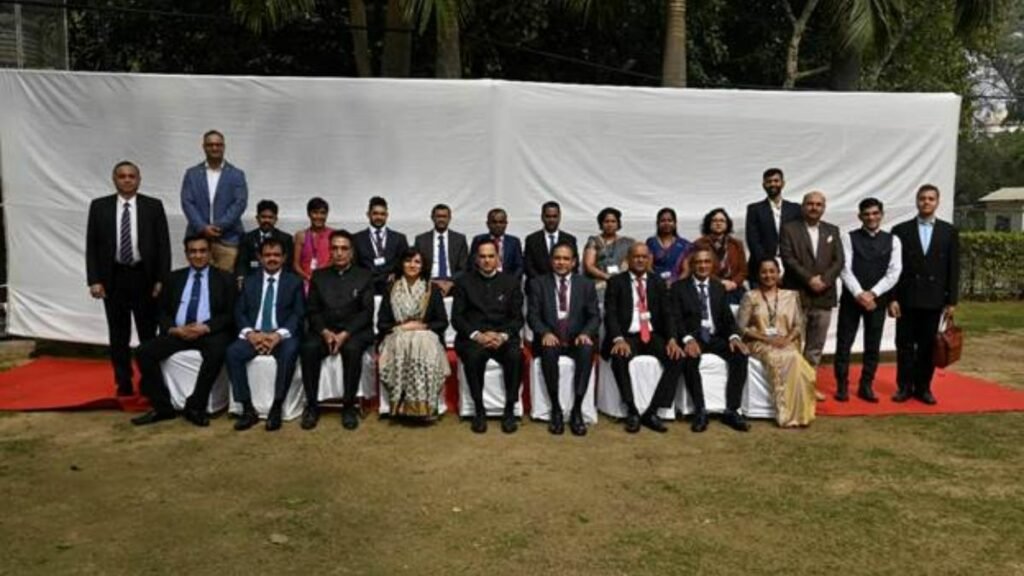
Acquainting the participating officers about the Administrative Reforms in India and Effective Redressal of Public Grievances, Shri V Srinivas, Director General of National Centre for Good Governance (NCGG), Secretary of Department of Administration Reforms and Public Grievances (DARPG) shared the progress and plans of the organisation along with the initiatives taken in the last few years. He discussed in detail the Good Governance Index, National e-Governance Service Delivery Assessment, Centralized Public Grievance Redress and Monitoring System, Viksit Bharat: Empowering Citizens & Reaching the Last Mile and Innovation in Governance: Secretarial Reforms.
The programme focuses on sharing India’s development models under Honourable Prime Minister Shri Narendra Modi’s Administration for Rural Development Projects, Connecting the last mile of India under infrastructure development projects, and technologies that were adopted by the government to facilitate through the utilization of robust models like CPGRAMS, Gati shakti, and other established frameworks, which have demonstrated efficacy in driving progress.
Thematic sessions on Digital Public Infrastructure as a Global Public Good, Open Network for Digital Commerce, GeM: Bringing Transparency in Government Procurement, NITI Aayog: Vision India @2047, Ayushman Bharat Pradhan Mantri Jan Aarogya Yojana, Making of Aadhar: A tool for Good Governance, Mission Karmayogi, Capacity Building of the Officials: Initiatives in India, Anti–corruption strategies among others will be delivered. As part of activities outside the classroom aimed at showcasing the history and culture of the country, visits have been planned for participants to the National Museum and Taj Mahal.
Senior Bureaucrats from various ministries such as the Ministry of Electronics and Information Technology, Department for Promotion of Industry, and Internal Trade (DPIIT), Ministry of Commerce & Industry, Government e-Marketplace, National Health Authority, Niti Ayog, Ministry of Rural Development and others will be sharing their experiences in various sectors with the visiting delegation.
The capacity-building program will be supervised by the training team of the NCGG.
Disclaimer: This is an official press release by Pib.

